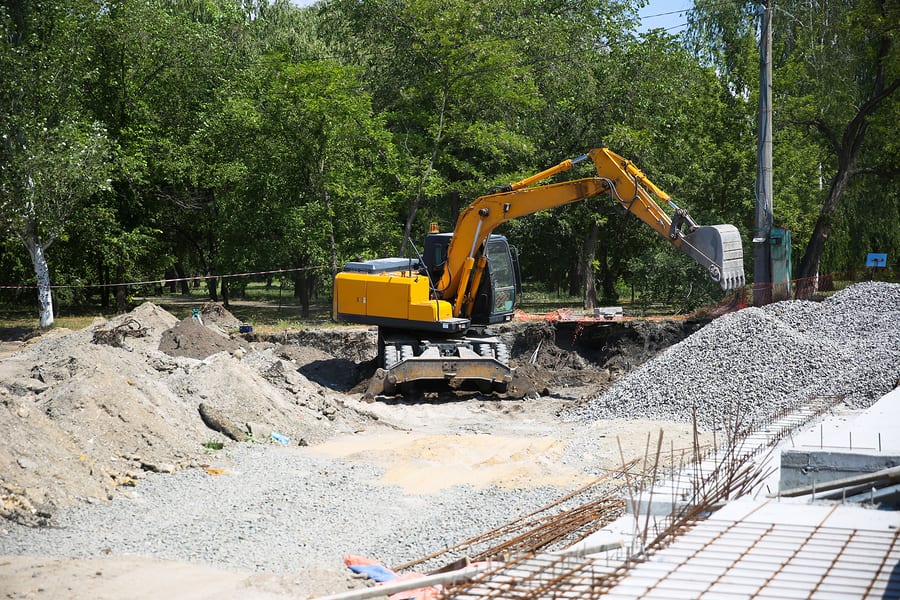When you’re building a new pipeline, the last thing that you need is a damaged utility incident. Hitting buried infrastructure doesn’t just create friction between you and utility companies — it can set back your schedule, bust your budget, or, in the worst-case scenario, seriously injure or kill a worker.
By hiring a reliable contractor that knows the ins and outs of safe digging practices, one-call notifications, and underground utility identification will help you avoid such incidents. But finding the perfect contractor is easier said than done, and it will require you to move beyond a Google search. Here are the things to seek out when you’re looking to hire a utility locating company.
Access to cutting-edge technology
Utility location technology is continuously improving, so you should seek out contractors that invest in the latest innovations. Here are a few examples of devices and technology that utility location contractors should have access to:
- Electromagnetic (EM) locator
- Ground penetrating radar (GPR) units
- Survey-grade instrumentation
In the field, having the latest technology allows contractors to accurately locate all sorts of utilities, from tiny telecommunication lines to irrigation pipes and major drainage systems.
Further, reliable contractors will have powerful, top-of-the-line software to create deliverables like crystal clear maps and highly detailed CAD drawings.
Respect for safe digs
Your utility locators might not be doing the digging, but it’s still critical that they understand — and respect — careful excavation practices. For example, a contractor that doesn’t sweep a parcel of land because it already has flags marking what’s believed to be electrical cables is putting workers at risk, and not someone you want on your job.
Instead, you want a contractor that has:
- A staff with ranging expertise and experience levels
- An outstanding safety record
- A library of comprehensive SOPs
Professional recommendations
Gathering recommendations from your professional network is an excellent way to compile a list of potential contractors.
You can shoot out texts or emails asking colleagues for recommendations, but there are other ways to identify companies that come highly recommended.
- Hard hat stickers on the job site. Contractors love to collect hard hat stickers from various job sites. So if you see a company’s logo over and over, it could be a sign that people like working with them.
- Client testimonials. You’ll likely do part of your research online. When you visit a contractor’s website, look around for client testimonials.
- Trade shows. Next time you’re at an industry trade show, chat up like-minded professionals about companies they like to use on their projects.
Understanding of the oil and gas industry
While there are indeed benefits to hiring a contractor that provides services across multiple markets, don’t underestimate the value of hiring a company that understands the oil and gas business.
In-depth knowledge of the industry helps contractors make informed decisions about proposal development, scheduling, employee training, and more, increasing the chances your projects will get off on the right start.
Here are a few tips for getting a feel for a business’s experience in the field:
- Start at their website. Many times, contractors will mention the specific markets they serve.
- When you bid out your project, request that contractors provide project experience specific to the oil and gas industry.
- If all else fails, set up a meeting and ask! More times than not, businesses are eager to share what they know.
Bonus tip: Familiarize yourself with digging best practices
Arm yourself with knowledge of digging rules, regulations, and best practices in your state. The more you know, the better partner you can be to your contractors (and vice -versa)!
For information on each state, click the links below.
Alabama
Alaska
Arizona
Arkansas
California (North)
California (South)
Colorado
Connecticut
Delaware
Florida
Georgia
Hawaii
Idaho (DigLine)
Idaho (Password, Inc.)
Illinois (Julie, Inc.)
Illinois (Digger)
Indiana
Iowa
Kansas
Kentucky
Louisiana
Maine
Maryland
Massachusetts
Michigan
Minnesota
Mississippi
Missouri
Montana
Montana (Flathead and Lincoln Counties)
Nebraska
Nevada
New Hampshire
New Jersey
New Mexico
New York (Dig Safely New York)
New York (New York 811)
North Carolina
North Dakota
Ohio
Oklahoma
Oregon
Pennsylvania
Rhode Island
South Carolina
South Dakota
Tennessee
Texas (Texas 811)
Texas (Lone Star 811)
Utah
Vermont
Virginia
Washington
West Virginia
Wisconsin
Wyoming
—
Ready to start your next project? Chat with a representative at TriMedia to learn more about our utility locating, environmental consulting, and health and safety services!


